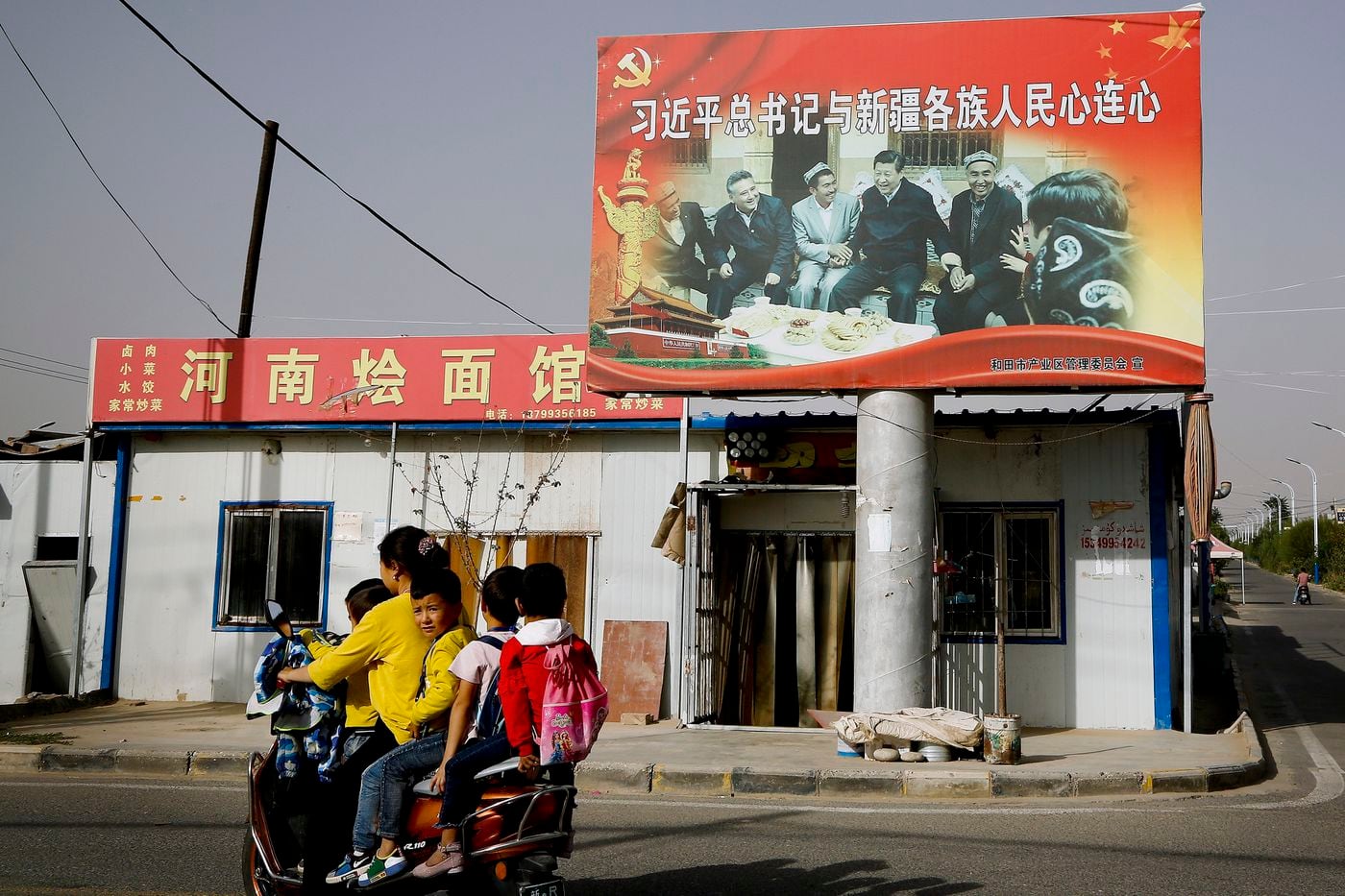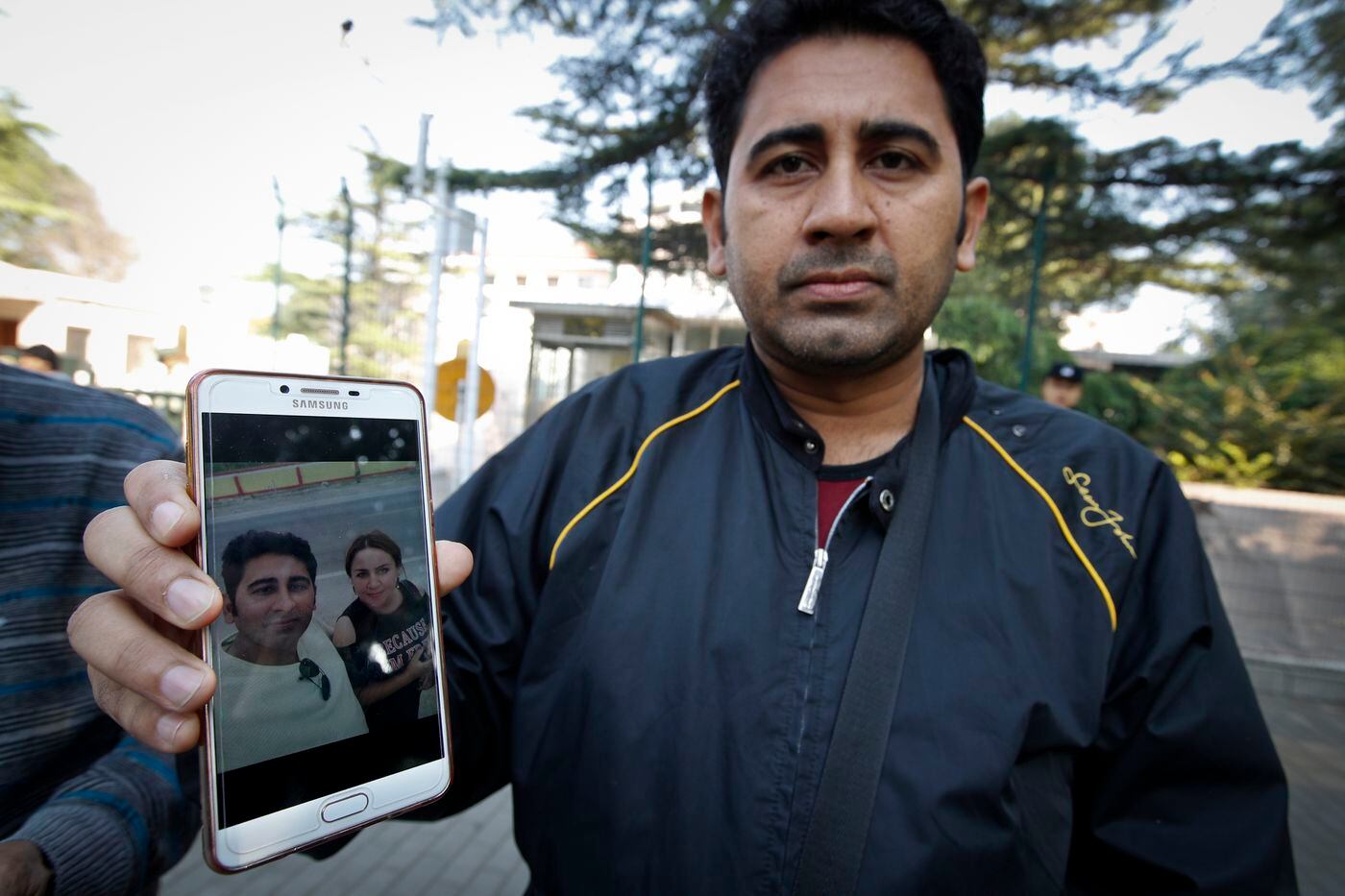Updated: May 30, 2019 – 12:49 PM
https://www.inquirer.com/columnists/attytood/china-concentration-camps-uighur-muslims-holocaust-american-jews-20190530.html?fbclid=IwAR2rRTGnuZmnEGKr-vgkPXeKyyf2Q6GffzphMvThs9E4iS9r1TPQ2KqbQ5g

It’s been more than three decades since Gulbahar Mamut and her husband left the remote corner of Earth that her Uighur people call East Turkestan and the ruling Chinese government calls Xinjiang for Southern California, where they attended universities and stayed to raise their two sons. But Mamut always went back every few years to visit her six brothers and sisters and her large extended family that’s stayed behind in the mostly Muslim region, despite increasing persecution.
The last time she went was 2015, and she could see how China’s totalitarian surveillance state was becoming increasingly intolerable, Mamut and her fellow Uighurs couldn’t walk more than 100 yards or so down the streets of Ghulja in far northwestern China without hitting a police checkpoint where she was asked to produce ID. When she tried to drive with relatives to visit a tourist site on the Kazakhstan border, she endured an hour and a half of often hostile questioning before she finally got her U.S. passport back.RELATED STORIES
- Why the lies my teacher told me about race in America after the Civil War matter in 2019 | Will Bunch
- Trump bullies Dems, other foes into cowardice. Without courage, America may be lost | Will Bunch
- Jay Inslee has a plan for saving Earth. So why is he at 0.8 percent in the polls? | Will Bunch
Two years later, in early 2017, she stopped hearing from her relatives altogether. The popular Chinese messaging app, WeChat, no longer worked. Mamut tried calling her sister and the phone cut off after a few seconds. So she called her older brother’s phone and his wife picked up to say she was at a police checkpoint and would call back.
That was her final contact. Friends tell Mamut that intercepted phone calls or messages from the United States could cause the ever-watching Chinese authorities to target her loved ones — at a time when as many as 1 million Muslims or more and other ethnic minorities have been rounded up and sent to what Beijing calls “education centers” and the rest of the world calls, justifiably, concentration camps.

“It’s just horrible,” Mamut told me by phone from a Los Angeles suburb this week, more than two years since she’s heard from her family. “I read articles about ‘Never again!’” — the mantra that emerged from the Jewish Holocaust during World War II — “and this is happening in the 21st century and nobody can do anything … How can we be not able to stop this?”
Gulbahar Mamut is right. The irony is heartbreaking. It was just four months ago that hundreds of thousands of American schoolchildren observed the annual Holocaust Remembrance Day intended to instill the message that the world can never again stand by idly and do nothing about such large-scale crimes against humanity. But the crisis in Xinjiang is showing a generation born long after the Nazi horrors of the 1930s and ’40s that “Never again!” is easier said than done.
ADVERTISEMENT
The escalating campaign of ethnic cleansing that China’s totalitarian government has been waging against the Uighur Muslims — not just a frightening level of surveillance, including dozens of cameras on every street and massive phone and internet monitoring, but now the growing numbers rounded up, detained and indoctrinated at a gulag of concentration camps — isn’t getting nearly the attention it deserves.

The U.S. government hasn’t minced words in calling out the mass detention centers as “concentration camps,” with Secretary of State Mike Pompeo saying the facilities “are reminiscent of the 1930s.” But the Trump administration’s deeds haven’t been nearly as tough as its language. President Trump decided against bringing up the plight of China’s Muslims in his talks seeking a massive trade deal with his counterpart President Xi Jinping, and aides deep-sixed suggestions for economic sanctions against officials involved in the concentration camps.
Does the flow of cheap Chinese goods really trump wholesale humanitarian crimes? Some Jewish-American groups that are committed to preventing a 21st century holocaust — not just for the Uighurs but in other global crises like Myanmar’s crimes against its Rohingyapeople — are starting to make more overt comparisons to what once happened under Adolf Hitler, in the hope that more people will pay attention.
ADVERTISEMENT
“For us, it is a ‘Never Again!’ moment, and we are seeking to educate and activate Jews nationwide,” Rabbi Simkha Y. Weintraub of The Jewish Board of Family and Children’s Services, told me by email. He said Chinese actions such as crackdowns on reading the Quran or speaking their native Turkic are —for American Jews following the story — “a painful echo of the murderous persecution by the Nazis just 75 years ago.”
Ann Strimov Durbin, director of advocacy and grant making for the California-based Jewish World Watch, has called China’s crackdown on its Muslims a form of cultural genocide and is working with U.S.-based Uighurs like Mamut to aggressively lobby members of U.S. Congress to back pending bills that could lead to economic and travel sanctions against Chinese officials and companies linked to the camps.
“China is a difficult adversary to go up against,” said Durbin, expressing her alarm at reports of offenses from razing mosques to forcing Uighurs to eat pork to even diluting the gene pool by pressuring Muslim women to mate with the growing number of ethnic Han Chinese who are moving into Xinjiang.

After all, it took nothing less than a devastating world war to stop Nazi genocide in 1945. China is an economic and, increasingly, a military superpower that’s resistant to outside leverage, especially when it’s a major trading partner of most developed nations. Coincidentally, this week will mark the 30th anniversary of China’s massacre of political dissidents in and around Tiananmen Square — a horrific event met largely with a collective shrug. In the case of the Uighurs, it’s been appalling that the world’s largest Muslim nations — led, of course, by their own murderous dictators — have made it clear they’d rather do business with Beijing than stand up for people of their own faith.
Activists like Durbin refuse to believe that the Uighurs are a lost cause. She’s busy lobbying lawmakers and arranging for California-based Uighurs like Mamut to meet with top aides to their Sen. Kamala Harris, now a leading presidential contender. She told me “a lot of it is about expressing solidarity and amplifying their voices” — adding that action by Congress on the sanctions bill would also send a powerful message of America standing with the Uighurs.
Mamut told me she’d like to see everyday Americans organize to boycott Chinese products in response to the crackdown and the concentration camps. “There are very few people fighting this fight right now,” she said. “We need everybody’s help.”
We shouldn’t let things like the vast distance between the United States and East Turkestan, the unyielding behavior of China’s dictators or worries about whether prices will keep falling at Walmart to so demoralize us to keep us from speaking out against human rights abuses. We can, and should, pressure Congress and the Trump administration to do a lot more. Never again? “Again” is happening right now, on our watch. What are we going to do?

